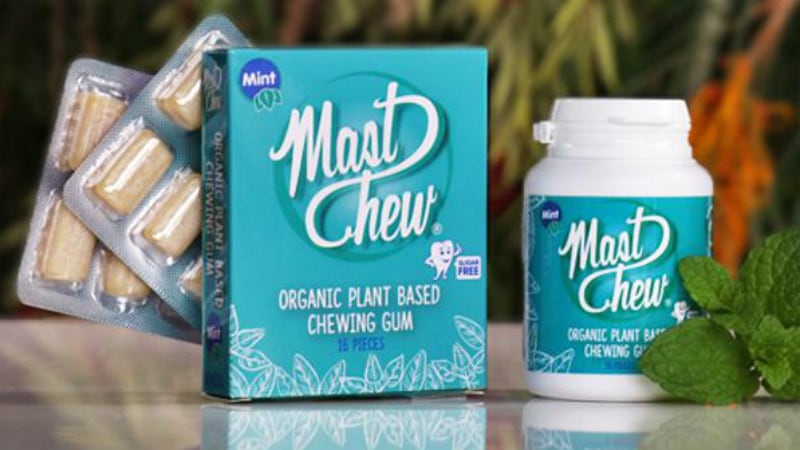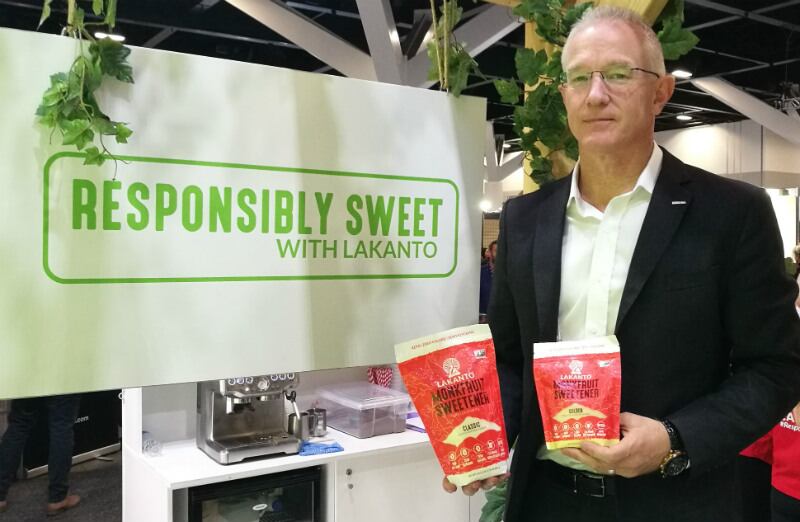Xylitol is the main form of sweetener used in chewing gum worldwide, and Yuxin works with large food firms that manufacture gum and related products.
Speaking to FoodNavigator-Asia at the Fi Asia-China show in Shanghai, Yuxin General Manager Ren Zhong told us that although all along the company’s main raw material had been sourced from corn, it was looking to develop wood hemicellulose as a more sustainable alternative.
‘The process of extracting xylose from hemicellulose uses 60% less water and 70% less energy than the traditional method of sourcing from corn,” he said.
“In addition, our aim is to use wood that comes from the waste by-product of paper mills and other such factories, so this will greatly increase the sustainability of our xylose and xylitol.”
Apart from this new raw material source, Yuxin is also developing a new form of chromatography extraction technology that aims to reduce both the cost and carbon footprint of xylose extraction.
“We are hoping that this form of technology can also recover product from the runoff of other extraction processes, such as to increase yield and decrease waste, water use and energy use,” added Ren.
He added that the company’s current technology already yields xylose of not less than 98.5% purity, and xylitol of not less than 99.5% purity.
Xylose vs xylitol
Xylose is extracted from corn cob or wood via hydrolysis, and is considered the raw material for xylitol.
The two products have very different applications: Apart from xylitol production, xylose is used primarily as food colouring, especially in Japan and Korea.
“Xylose gives a brownish colour due to the natural Maillard reaction, and as such is very commonly used in fishballs, meatballs, sausages and flavourings like soy sauce as a colouring agent,” said Ren.
As for xylitol, it is used as a sweetener mainly for chewing gum due to its known dental health benefits, but has seen increasing use across many food categories as of late.
“It is an alcohol and not a sugar, and can be consumed by diabetics, plus the daily intake limits for this are very high, so it is being increasingly used to substitute sugar in confectionary, bakery products, chocolates, beverages and more,” said Zheng.
“In South Africa and Europe, its use as a table sugar is also on the rise.”
In comparison with natural sweeteners such as monkfruit and stevia, xylitol was seen to hold the advantage of being more similar to regular sugar in terms of taste and sweetness.
“Stevia still has some issues with bitterness, whereas the supply of monkfruit is limited as it is only found in China – plus both are 200 to 300 times sweeter than sugar, so there is bound to be differences in terms of taste and sweetness,” he said.
That said, he emphasized that xylitol is ‘not competing’ with the two, because its application is primarily for the chewing gum sector and so can be considered as ‘serving different industries’.
Unusual applications
Ren added that xylitol is increasingly being used as a form of branding for products, and also in categories that were never thought practical before.
“It is being used in the production of bakery products like cakes, using xylitol as a reduced-sugar selling point, as well as in the herbal liquor market in China, where the liquor firms then market these products as suitable for diabetics to drink, low in calories and so on,” he said.
Based on Yuxin’s sales, as a whole the xylitol market in China is expected to grow 10% to 15% this year, whereas the global market is predicted to grow by some 8% to 10%.
“We will be working to increase the efficiency and reduce cost of our processing via new technology so that the product cost will also become more competitive, as well as try to increase our manufacturing capacity in order to meet and capture this market increase,” said Zheng.





